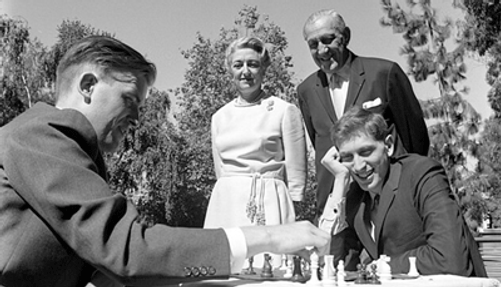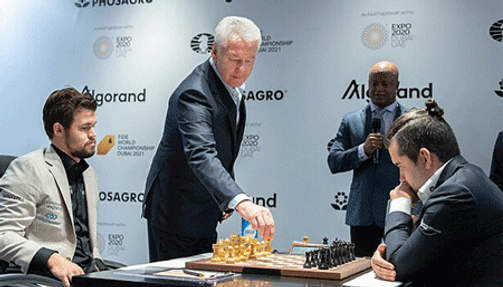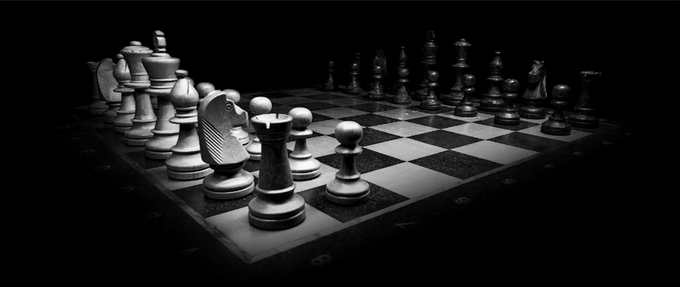Maybe you became enamored with Anya Taylor-Joy's character in The Queen's Gambit, or maybe you're on a mission to be a grand master yourself. Either way, chess is a game that has gripped audiences from around the world for centuries.
Indeed, it is considered to be one of the oldest board games in history, first appearing in India during the 6th century as chaturanga. Whether you enjoy the idea of chess or have partaken in a match or two, you are immersing yourself in a long line of talent.
Above all, chess is a game of strategy, in which all information through the form of white and black pieces that move is available to both players. That being said, it is how each person decides to move those pieces, by activating critical thinking, problem-solving, and a host of other skills, that defines them, both inside and outside the world of chess.
The following matches are some of the most famous chess games in history—to be studied and memorized, or, more simply, appreciated for their beauty as profound displays of intellect.
Adolf Anderssen vs. Lionel Kieseritzky, 1851
Known as the Immortal Game, Adolf Anderssen and Lionel Kieseritzky were in London for the 1851 chess tournament. However, this match was played outside the tournament, as a casual, friendly game between the two players.
Anderssen won playing white, through a rather unexpected tactic of sacrificing all of his major pieces—also known as heavy pieces, which include the queen and two rooks. From there, with his remaining minor pieces—which include the two bishops and knights—he developed what is known as a “mating attack.”
In this mating attack, he used his moves to checkmate Kieseritzky's king. Rather than preserving his material on the board, that is, his chess pieces, Anderssen took on an aggressive approach that prioritized acting quickly, which ultimately worked in his favor.
Even though Kieseritzky lost the game, he was incredibly impressed by Anderssen's tactics and published the game in La Régence, a French chess journal.
In 1855, Australian chess master and journalist Ernst Falkbeer published an analysis of the match, describing it for the first time as "immortal." Now, beyond being a game that most players are familiar with and study, it is said to be the epitome of the 19th-century Romantic style of chess.
The style, championed by Anderssen, is characterized by aggressive moves and fast gameplay, where sacrifice and creativity take hold.
Paul Morphy vs. the Duke of Brunswick and Count Isouard, 1858
This match was played at an opera house in 1858 in Paris—thus receiving the name of the Opera Game—between American master Paul Morphy and two players of amateur status: the German noble Karl II, Duke of Brunswick, and the French aristocrat Comte Isouard de Vauvenargues. It was played as a consultation game, meaning two players, in this case the Duke and Count, work together, deciding the moves for one side.
Playing white alone, Morphy quickly took the game while an opera unfolded in front of their box. Morphy was able to defeat them after a queen sacrifice, leading to a checkmate, teaching many players who have since memorized the game the value of risks in mating combinations.
Building off of 19th-century romantic chess tactics, Morphy saw an opening in the board when the joined players sacrificed a knight, and used the advantage as an opportunity.
In Comparative Chess, U.S. Chess Champion Frank Marshall explores the question of how Morphy would have ranked amongst players of the 21st century. Marshall explains how his style was rather old school, “often brilliant, but sometimes unsound.”
Although it is a difficult question to answer, Morphy's style ultimately depended on "small advantages," which did, however, lead to quicker development and a drama that many modern players have come to appreciate.
Donald Byrne vs. Bobby Fischer, 1956

Bent Larsen and Bobby Fischer playing chess (1966).
Photo Credit: Wikimedia CommonsLargely considered to be the match of the century, Bobby Fischer was only 13 years old when he defeated U.S. Open Chess Champion Donald Byrne in 1956. At only 15, Fischer would go on to become the youngest grand master ever at the time (the highest possible title achieved in chess), with this game of his being only one of many that competitive players turn to study.
Fischer became familiar with chess at just six years old, under the instruction of Carmine Nigro and Jack Collins.
What would become the "Game of the Century" against Byrne, a decade later, established Fischer as an international chess icon.
During the game at the New York tournament, he sacrificed his queen on the 17th move, setting up an equally aggressive and brilliant counterattack. In this match, he demonstrated an innovative style, one that was ready to adapt and seize upon an opponent's misstep.
Hans Kmoch, in Chess Review, wrote about Fischer's playing: "The following game, a stunning masterpiece of combination play performed by a boy of 13 against a formidable opponent, matches the finest on record in the history of chess prodigies."
Fischer would go on to win the World Chess Championship in 1972, ending 24 years of Soviet dominance, while also winning the U.S Championships eight times over his career.
There is no doubt that he is one of the greatest chess players to ever live, with his skills and life later inspiring the Academy Award-nominated movie Searching for Bobby Fischer.
Anatoly Karpov vs. Garry Kasparov, 1985
The 1985 World Chess Championship was considered a much-anticipated rematch, just seven months after the 1984 championship between the same players. After 48 games, the 1984 championship concluded with no result, becoming the only championship to conclude in this way.
Karpov and Kasparov, although having an age gap of 12 years, were evenly matched, with the elder Karpov having a rating of 2720, and Kasparov close behind at 2700. Given that the championship in 1984 lasted over five months, the International Chess Federation (FIDE) agreed to a fixed time, with the winner to be determined by the best of 24 games.
In the end, Kasparov narrowly defeated Karpov, becoming the youngest world champion at the time at 22 years old.
Not only did the games offer a conclusion to a year-long feud, but the players also represented a clash between the then-ideologies of "new Russia" and "old Russia," fueling disruptive politics in the nation.
Kasparov went on to hold he highest chess rating of 2851 in 1999. He was surpassed by Magnus Carlsen in 2013, who is currently ranked as the best in the world for classical chess, ushering in a new generation of talent.
Magnus Carlsen vs. Ian Nepomniachtchi, 2021

Magnus Carlsen and Ian Nepomniachtchi at the 2021 World Championship.
Photo Credit: Wikimedia CommonsIn recent history, this lively, exciting match is credited as restoring interest in chess for both new and returning watchers alike. The New York Times particularly referred to Game 6 as "the breakthrough that blew open the contest" and “an epic struggle that rewrote the chess record books.”
The match began in Dubai on November 24, 2021, ending on December 12, with the first five of 12 games ending in draws.
At the time, Carlsen was the reigning world champion and Nepomniachtchi was the challenger. But Game 6 indeed proved to be the turning point, with Carlsen seizing an eight-hour struggle, totaling 136 moves, making it the longest game ever in World Chess Championship history.
After this huge loss, Nepomniachtchi's level of play declined, and Carlsen won Games 8, 9, and 11, making him a five-time world champion.
The following year, however, Carlsen declined his invitation to defend his title, citing a lack of motivation.
Nevertheless, at only 34, he has solidified himself as one of the most talented and successful chess players to grace the game. He has continued to play, but in rapid and blitz chess, as he has become less interested in the classical format since his defeat of Nepomniachtchi.
